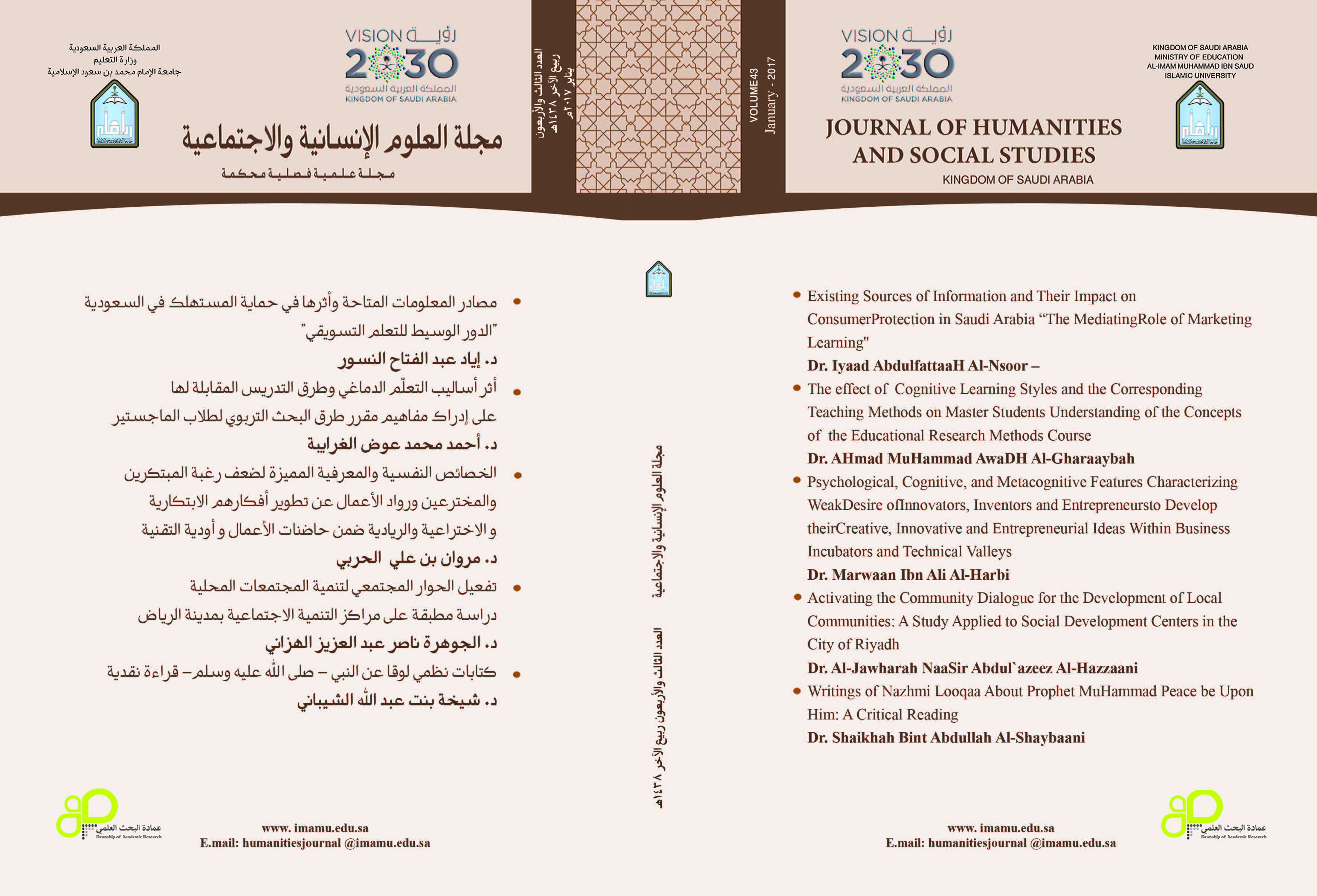Writings of Nazhmi Looqaa About Prophet Muhammad Peace be Upon Him: A Critical Reading
Abstract
This research investigatesthe writings of Dr. Nazhmi Looqaa (1920 – 1987), a Coptic thinker, about the prophet's biography: MuHammad al-risaalah wa al-rasool, Waa MuHammadaah, and MuHammad fi Hayaatih al-khaaSSah. Looqaa is not an orientalist intrigued by the study of religions immersing himself in the books of the prophetic biography and Islamic history. Instead, he assures that during his boyhood, he had many motives that drew him close to Prophet MuHammad –peace be upon him- ashe was taught by a Muslim man and memorized the Holy Quran.
What has motivated the researcher to study Looqaa's personality and works is the moderation manifested in his writings about Islam and the character of Prophet MuHammad –peace be upon him-. Due to this moderation, Looqaa suffered segregation by some fanatic Christians to the extent that no priest prayed for him when he died. This research aims at highlighting the efforts of non-Muslims in writing the Prophet's biography as well as studying critically and analytically their writings showing the approach used.
This research is divided into two parts. The first part deals with the upbringing of Nazhmi Looqaa and his life in two sections: one tackles the upbringing of Nazhmi Looqaa and his education, and the other discusses the factors of his interest in Islam and Prophet MuHammad –peace be upon him-. The second part studies Looqaa's writings about the Prophet's biography critically and analytically in two sections: the first is a presentation and critique of Looqaa's writings on the Prophet's biography, and the second is about the approach and references used by Looqaa in his writings about the Prophet's biography.
The research concludes with a recommendation to study the writings of the so-called moderates about the Prophet's biography critically and analytically. That is because such writings are not free of flaws and may mislead non-specialists in their study of the Prophet's biography who may use it as a reference in their writings.




